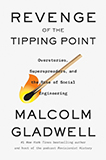My high school had a weighted GPA system that took into account the level of different classes. For example, receiving an ‘A’ in a regular class would count as 4.00 while receiving the same grade in an honors class would earn you a 4.33. An AP class would raise the average even higher with a 4.67, so it was no surprise that the valedictorian of the class graduated with a GPA that was above a 4.5.
I always thought the system to be fair until I entered my junior and senior years, when the arts requirement was no longer necessary and “the smart kids” stopped taking them altogether. I continued taking music and art classes until I graduated because I loved these subjects; I also knew for a fact that many of the “smart kids” appreciated those classes as well and couldn’t understand why they would cease taking them.
Then one of them explained the cause: taking an arts class — which did not have honors or AP levels — would bring down their GPA.
I haven’t thought about my high school grading system in years. But I was forced to revisit it this morning as I read an article in The NYTimes talking about the growing trend in high schools to do away with the traditional valedictorian system and have as many as 30 top students up on the podium as co-valedictorians in order to reduce pressure and competition among students.

Co-valedictorians at Lyons High School in Colorado
My first thought after reading the article was, “Here we go again — this is just an extension of kids receiving medals and trophies just for ‘participating.’ Whatever happened to having clear-cut winners and losers? This is why the U.S. is so behind in education.”
While I agree that we should honor the top students in a graduating class, especially the ones who were just mere fractions of fractions away from the top GPA, I also believe that this is what honor societies, special cords and sashes, and the “summa cum laude” and “magna cum laude” designations are designed to do.
I have always believed that lessening the importance of achievements in order to avoid stepping on others’ toes, especially starting at a young age, does nothing but add to the entitlement generation and only paves the way for future disappointments.
However, with my own high school’s grading system in mind, I cannot help but wonder why some of my peers were discouraged — however indirectly — from pursuing their interests, hobbies, and/or dreams for the sole purpose of keeping their GPAs at elite levels. Were they smart to take advantage of the system? Or should they have taken the classes they wanted in order to learn what they wanted to learn?
Does a system that is both fair and beneficial to the students even exist?






 I like books, gadgets, spicy food, and art. I dislike shopping, hot weather, and the laws of entropy. Although I am a self-proclaimed computer nerd, I still have a love for handbags and makeup... and I am always teetering on high heels. To learn more about me, visit the
I like books, gadgets, spicy food, and art. I dislike shopping, hot weather, and the laws of entropy. Although I am a self-proclaimed computer nerd, I still have a love for handbags and makeup... and I am always teetering on high heels. To learn more about me, visit the 


In terms of the weighting of grades, my school’s system hurt the top students. For instance, an AP class added 10 points to your grade, but an honors class added 6. So you could get a 94 in an honors class and have it be the same weight as someone getting a 90 in an AP class. However, in my school it was clearly way harder to get a 90 in an AP, since honors classes were not all that challenging.
As a result, our salutatorian was a girl who had an excellent GPA because she took Honors English as opposed to AP and Accelerated History as opposed to AP (Accelerated is for average people…my school just doesn’t want anyone to feel dumb). I never argued that I deserved the title but rather I had classmates who took some of the hardest AP classes and were penalized because this girl was a slacker.
Another thing that irritated me was that my school said it did not rank. However, they would still declare a valedictorian and salutatorian. How can they pick a #1 and #2 if they don’t rank? Why do #1 and #2 get to know their rank and no one else? I was lucky to find out I was in the top 4%.
I think they should get rid of ranking altogether. I went to a fairly competitive high school where I was somewhere between #16 and #21. But if I had lived 5 miles away, I without a doubt would have been #1. In the whole college admissions process, rank relative to each school hurts students who go to competitive high schools. It makes students like me thankful for standardized tests that help me stand above students from other schools with better GPAs.
I attended an AP school back home and received good grades, but when I transferred to a school that didn’t have AP courses, my GPA plummeted because the B’s i received at my previous school caused my GPA to drop below a 4.0. It was a bummer and it wasn’t exactly fair, but you know what? I still got into college and I’m still doing just as good (if not better) than a lot of my peers.
If you need a 4.5 to get into Yale (and rack up all that debt, haha), and that’s your goal, you’ll have to make the sacrifices to do so. But students should realize that you can take some classes you WANT to take, take a slight hit in GPA, and STILL do fantastic in college and life. I took art classes in high school, too, and they were a blast. I wouldn’t take AP history in lieu of them! Life’s too short to study 24/7. That’s what college is for =]
Unless you have very high, very extreme aspirations, what is the point of taking so many advanced/honors/AP/IB courses that all you do is study 24/7 and you don’t even get to enjoy high school? Plus, many MANY colleges value a student who is well rounded–if all you do is study 24/7 and you have top notch grades but you don’t do a damn thing otherwise, well, i have heard from many sources that that actually hurts you. Hobbies, volunteer work, sports, part time job, etc, all factor in.
My high school was very competitive and I was discouraged from taking arts courses because of the weighted grades. I was also upset that my mom wanted me to take Driver’s Ed — just a 1 semester course that I dreaded would pull down my GPA. Making good grades was important to me. I consider myself lucky that I went to a school where it was cool to be smart, but it did foster some extreme competition for a top spot. Even though I went to a liberal arts college that wasn’t too competitive and I probably would have been accepted with a 3.6, my good grades provided me with an excellent scholarship.
I went on to college and took art, art history, music theory, and theater classes — it seems like there could be some way to incorporate the "college level" into high school for interested students in these schools where kids choose what they’re willing to take with their GPA in mind. There really is rigor in the arts, it’s just not usually recognized in school.
Great post, as usual! I agree wholeheartedly that the lack of actual competition and the idea that participation needs to be rewarded is precisely why we’re behind, not only in education, but in scientific advancements, sociological advancements, hell, even in athletics a lot of the time (the last Winter Games notwithstanding).
Competition is how we learn our strengths and weaknesses, but it’s also how we learn to be better. We learn to strive for more than mediocrity because we don’t want so-and-so to beat us. That, in and of itself, is both fair AND beneficial, as long as the parents and teachers involved treat it as such. As soon as parents start crying about the system being unfair, you start getting kids who feel entitled just because they woke up this morning and showed up. That, in and of itself, is NOT an accomplishment, and it should stop being treated as such.
At my school, an ‘A’ for an honors class gave you 5.00 points and regular classes gave you 4.00. We were also an International Baccalaureate school, which is a program that gives you international accreditation, but can basically be described as AP classes on crack. IB students take all IB classes with some exceptions, so what ends up happening is you get kids with ridiculous GPAs like 4.95 or something.
I was in IB, but I also was in music classes all four years (which was discouraged at my high school as well for kids in this program). This meant that even though I was doing as well as some of my IB classmates, because I was in music classes (which only counted for 4.00), those classes actually hurt my GPA. The backwardness of this logic always drove me nuts. I was being punished for being more educated than my classmates, who only cared about grades. It also meant that all the AP kids hated us because we were monopolizing the upper tiers of the GPA. There were double the amount of IB courses offered as compared to AP, so even if an AP kid got all A’s, there was no way he could beat the GPA of someone taking IB classes and who received all A’s (as a couple of my friends did).
This is probably the reason that my high school didn’t recognize the valedictorian (even though we all knew who it was). Of course, it’s not like any of this actually matters. My high school GPA has done almost nothing for me in the "real world." But it sure did matter at the time.
I forget how my school weighted the GPA, but 4.0 was the highest. It is sad that current systems influence students to take classes based on what will most increase their GPA vs. genuine interest in the subject. Our law school published a chart each yr that tracked the avg GPA and letter grade received for a certain course under a certain professor. Many of my peers took easy classes that guaranteed at least an A- to boost their GPA whereas I took classes that seemed interesting but ended up being more difficult on the grade curve. I regret not having done the same thing as my peers because basing my course selection on interest caused my GPA to suffer and ultimately affected my job prospects and financial situation in this current recession and that definitely outweighs whatever interest I gleaned from the courses. I wish such a choice didn’t have to be made! (PS – gonna post the blog link w/the Manhattan food map to my FB, thanks!)
I meant 4.0 was the highest for my high school.
My high school did the same thing. An A in an honors class was 5 points, and 6 points for an AP class. The guy who was hands-down the smartest guy in my class ended up 3rd because he took yearbook. I was similarly "punished" because I took band every semester. (Yep, band geek here.)
I recently read an article about law schools that are arbitrarily raising students’ GPAs by as much as half a point to make them more competitive in the job market.
I’m in favor of recognizing the idea that AP classes are harder than others, etc. But where does it end?
@Sarah: Band geeks unite! What instrument did you play? (I played clarinet.) Plus, they knocked me double on the GPA: once for concert band and once for marching band (which were separate classes).
I have two separate stories about weighted grades.
My school had weighted grades only for AP courses (A=5pts), but usually you had to have a high grade like a 95% to get that weighting. My sophomore roommate came from a high school where they weighted all honors courses and she had an absurdly high GPA, without ever taking an AP course. She also totally bombed in college, thinking that it was so easy to get good grades, and then lost her scholarship. The weighting totally gave her a false sense of how much work she had to do to keep her GPA up. She also did not have a well-rounded high school experience.
My close friend from high school took all the same AP courses as the valedictorian, but she also took some college courses above and beyond the normal workload. These extra 4-point A’s actually brought DOWN her GPA on average, losing her the Valedictorian slot. Yeah, many people in my class were pretty outraged by that. So, I can see why sharing the Valedictorian title would be beneficial based on the circumstances.
Also I can tell you, from a recruiting perspective, weirdly high GPAs seem to tip off recruiters and interviewers that your high school was doing something ridiculous with its grading.
I forgot something! I am all about the well-rounded education. I credit being in band in high school and college with a lot of my success. It was brought up in my business school interview and every interview I had for the job I have now (that sounds weird, but my firm has a 4-interview process).
Hello to the band geeks above! @Sarah @Ashley (actually Ashley and I were in college band together, woohoo!)
My high school (all-girls boarding prep school) didn’t weight GPAs, didn’t award "highest in class" and didn’t rank anyone. The highest 4-year GPA in my class was a 3.82. Universities didn’t need our high GPAs because our school’s reputation was already soundly known. Our school also mandated arts, language and religion courses all four years, so we couldn’t reduce our 8-course load just to help out our GPA. Oh… and an A was a 95+. An A- was a 90-94 and pluses/minuses definitely counted.
When I went to prepare my college applications and saw my GPA jump above 4.0 for the UCs and such… it was surreal and odd. I loathe sending our daughter to a traditional public school just for this insanity alone.
My school recognized the top 5% instead of having a valedictorian/salutatorian (my class had 10 people in this group). We were a very competitive class, so it was nice to see more than the 2 people who managed to take the most AP classes get recognition. I’m not sure what I would want my (future hypothetical) children to do. I balanced overachiever AP classes and personal interest courses, but in many schools now you can’t end up at the top unless you exclusively take weighted classes.